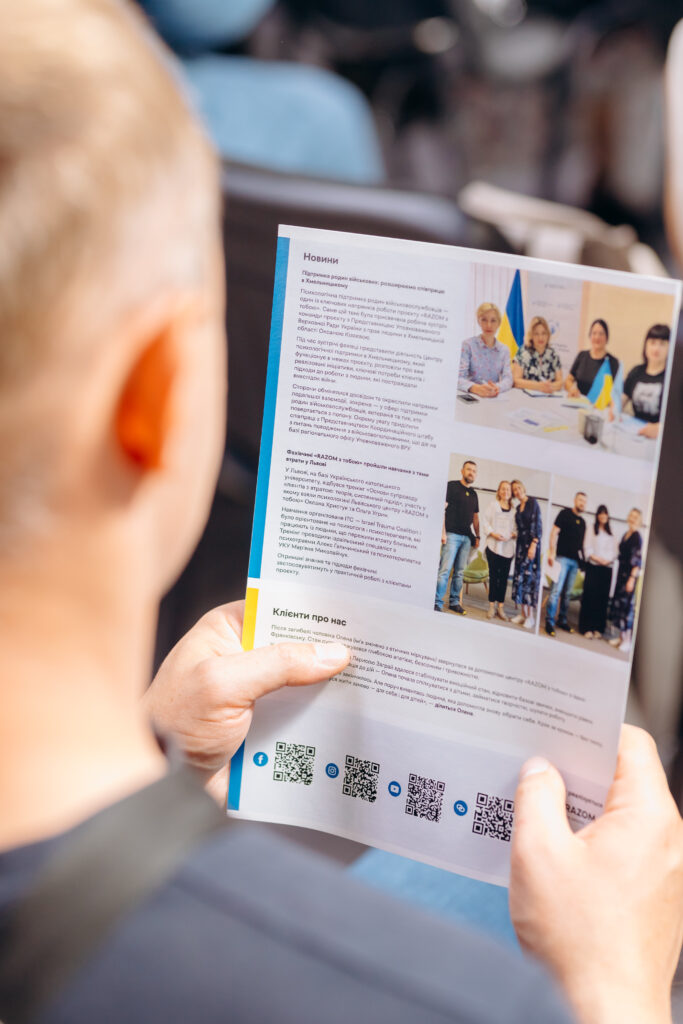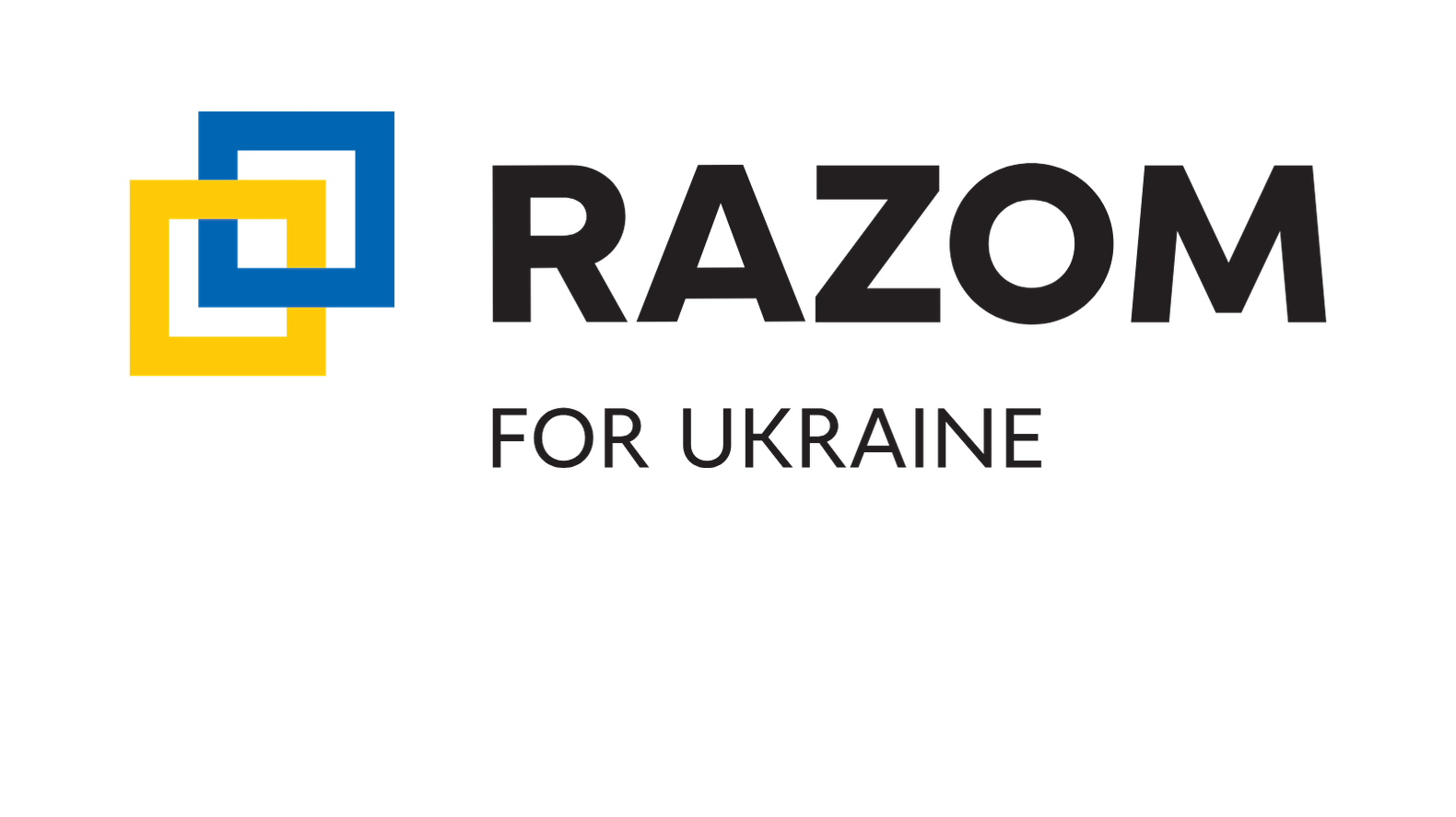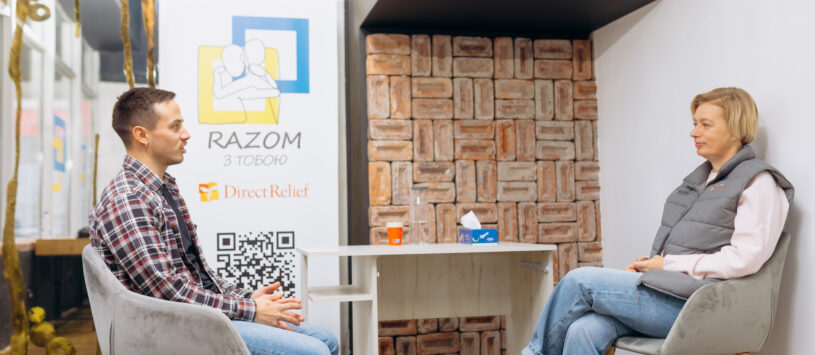On October 10, the world marks World Mental Health Day. For Ukraine, a country enduring its third year of the full-scale invasion, the day resonates in profoundly urgent ways. The violence of Russia’s aggression has left deep scars not only on the land and bodies of Ukrainians, but also on their minds and hearts. The invisible wounds – trauma, anxiety, depression, grief – will outlast the missiles and sirens if not addressed with compassion, professionalism, and persistence.
Razom’s Razom z Toboyu (Together with You) initiative exists for exactly this reason. It is a growing network of psychological support centers and online services providing free, high-quality mental health care to Ukrainians affected by the war. More than a project, it is becoming a cultural shift: building a future in which seeking psychological support is not taboo, but normal, valued, and accessible.
This transformative vision has recently received a powerful boost. Direct Relief awarded Razom z Toboyu a $1 million grant to expand access to mental health services across Ukraine.
The Mental Health Landscape in Ukraine
The statistics paint a sobering picture. At the beginning of 2025, only 36% of Ukrainians reported satisfaction with their psychological state, down from 41% in 2022. More than 83% live under high stress, and experts estimate that 40–50% of the population – some 15.7 million people – will need psychological assistance in the coming years.
Symptoms are widespread and pervasive: 58% report anxiety and tension, 50% sleep disorders, and nearly half report exhaustion and low mood. Among the most vulnerable are 1.8 million veterans, 7 million elderly people, and around 4 million children. The stakes are high, as untreated trauma risks translating into intergenerational harm, rising rates of depression, suicide, and social instability.
And yet, amid these challenges, there are signs of hope.
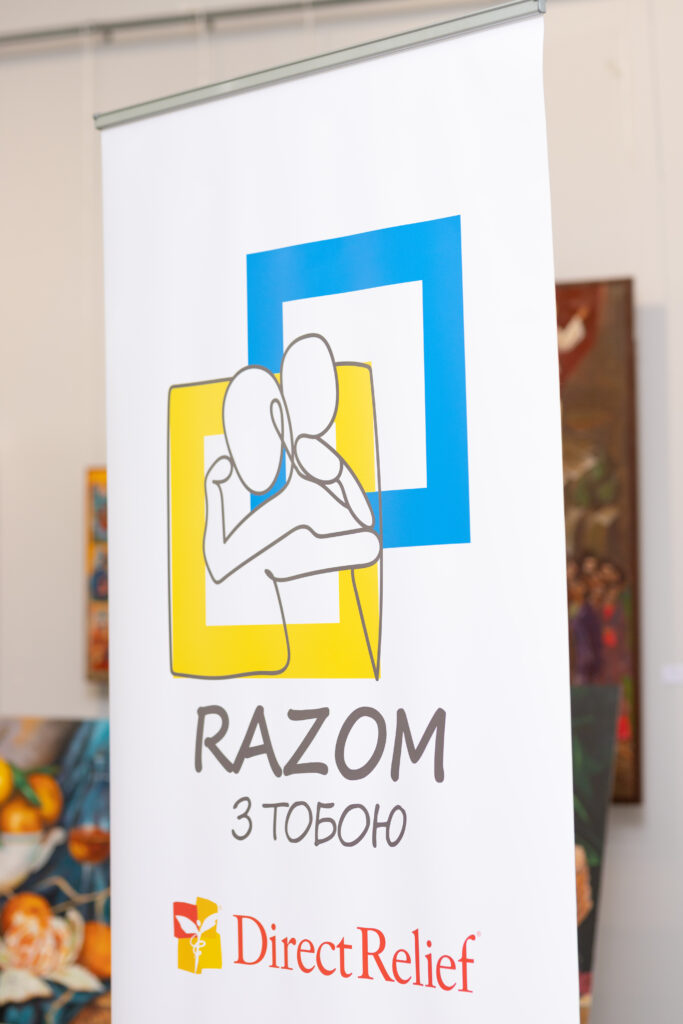
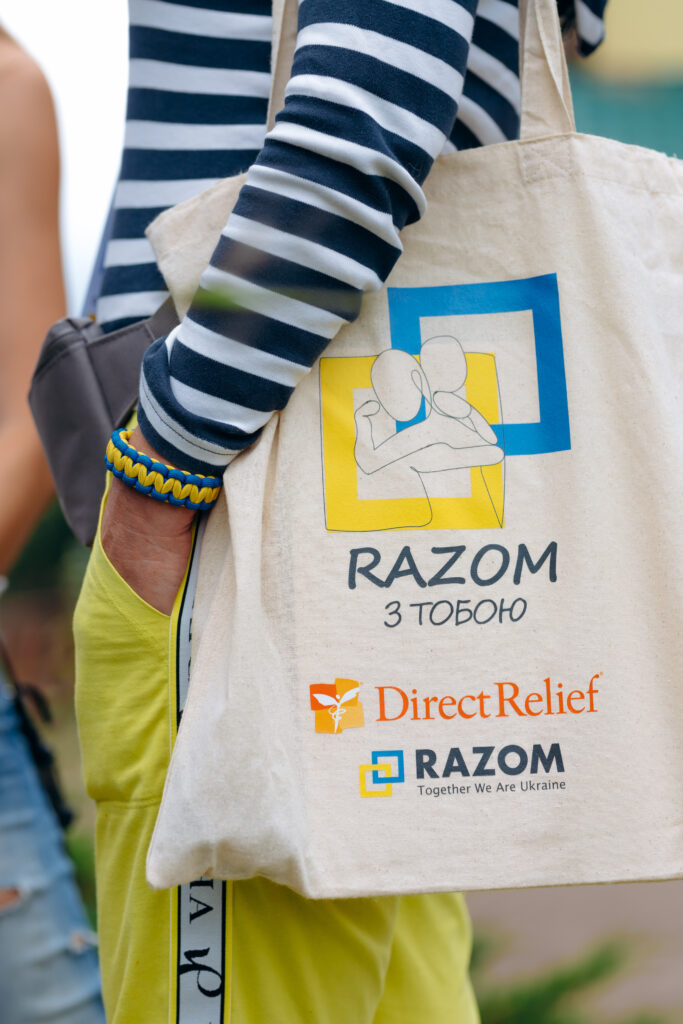
Stigma around therapy is diminishing, as demonstrated by the share of Ukrainians willing to see a psychologist growing from 7% in 2022 to 17% in 2025, while the overall demand for psychological support jumped from 41% to 71%. This is where Razom z Toboyu has stepped in, not only to meet the need but to accelerate this cultural transformation.
Building a Network of Care
Razom z Toboyu was founded on a simple yet profound conviction that healing is possible, and help is close by. With physical centers in six cities and nationwide online access, the program combines local expertise with global best practices. Its 50+ specialists offer individual and group therapy, outreach support, psychoeducational programs, and webinars.
The numbers are impressive: since the launch, the program delivered 25,730 individual
consultations, 2,883 hours of group sessions, and trained 1,373 professionals across Ukraine.
Nearly 90% of clients said their challenges became more manageable, and 100% would recommend the program.
But behind every number is a human story (names changed for anonymity):
- Larisa, who lost one son to war and whose other son remains in captivity, found in Razom z Toboyu the strength not only to survive but to create a nonprofit for other grieving women. She now leads art workshops and support groups, becoming a beacon of solidarity.
- A veteran with survivor’s guilt after losing his entire unit began to heal through therapy, eventually remarrying and rebuilding his life.
- Oksana from Mariupol, who lost her home and future, arrived at the Bucha center unable to stop crying. With steady support, she regained hope, found work, and now uses her craft both as therapy and as income.
These stories embody what Program Director Iryna Gudyma describes as the essence of the initiative: “Resilience is woven into our DNA – we fall, we rise, we rebuild. And all that while carrying unimaginable loss – Ukrainians keep choosing dignity, solidarity, and hope.”
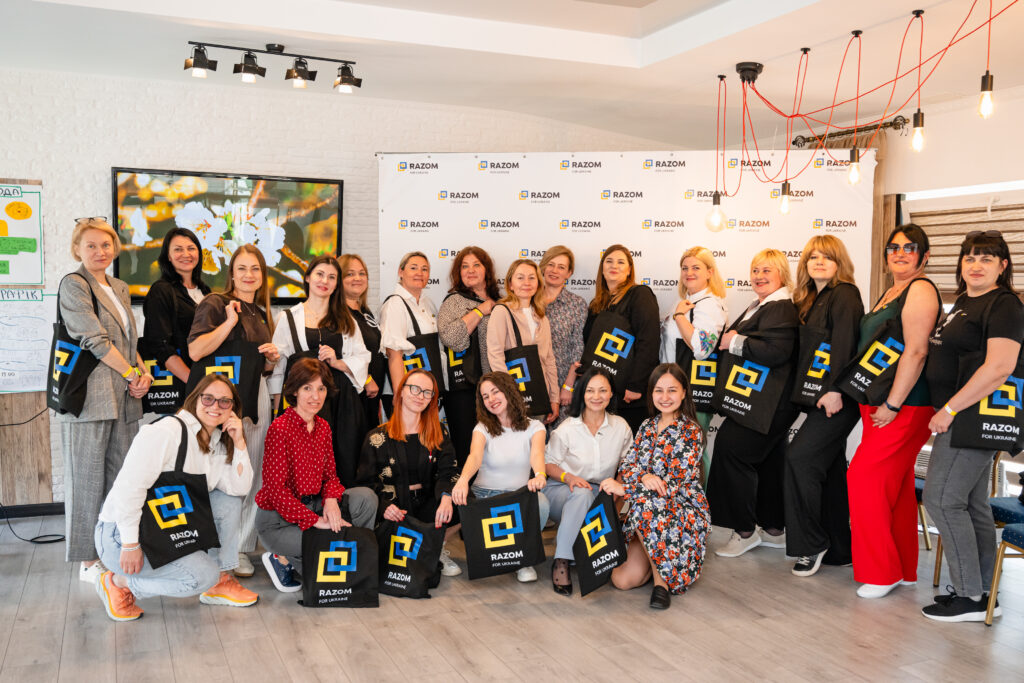
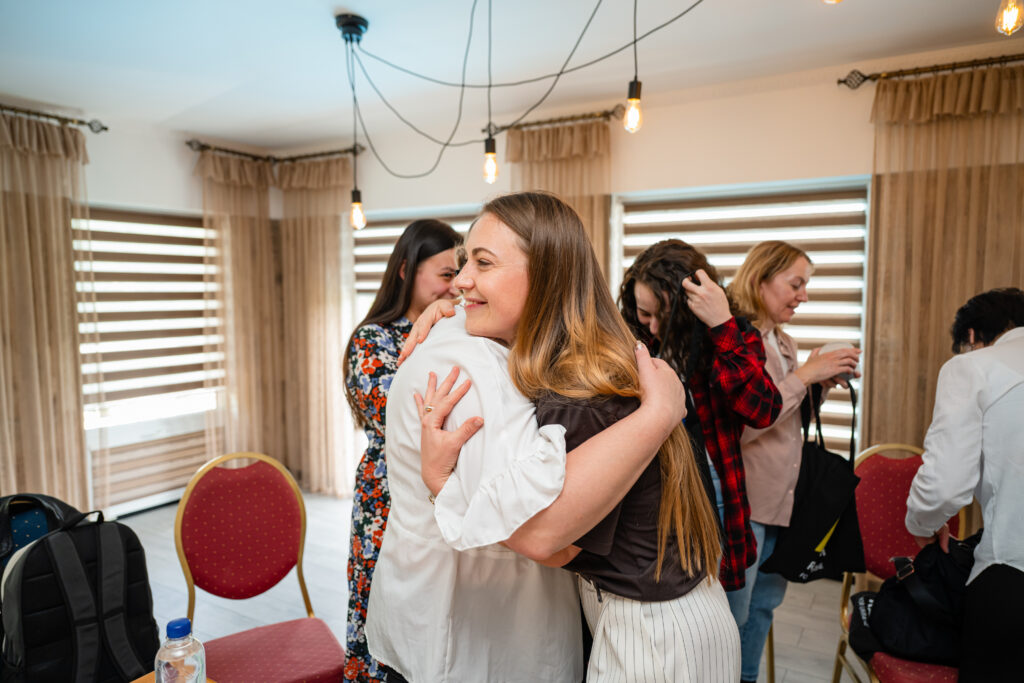
Innovation for a New Culture
Razom z Toboyu is not just delivering therapy; it is pioneering models that can redefine mental health in Ukraine for generations.
One innovation is the digital HealthSuite system, which securely documents consultations, monitors outcomes, and enables large-scale planning. Another is the introduction of VR-assisted therapy and digital EMDR tools to scale trauma-focused care. In the future, a voice-first pilot will allow Ukrainians – including those in rural or isolated areas – to receive coping exercises and risk monitoring via phone.
Equally important is the focus on psychoeducation. Through resilience trainings, webinars, and partnerships with schools and workplaces, Razom z Toboyu normalizes conversations about mental health and equips people to support one another. As Gudyma notes, the program is building systemic resilience so “the next generation can grow without the shadow of untreated trauma.”
A Wise Investment in Ukraine’s Future
This work has not gone unnoticed. A recent award from Direct Relief is a recognition that mental health is as critical to Ukraine’s recovery as physical reconstruction. “How forward-looking they are,” Gudyma reflected, “that they realize the importance of mental health for the future of Ukraine. We are so grateful for their support.”
Indeed, the grant is more than funding; it is a vote of confidence in the vision that healing minds is foundational to rebuilding a nation. In the words of one veteran’s wife, “They gave me a DREAM that makes me strong.”
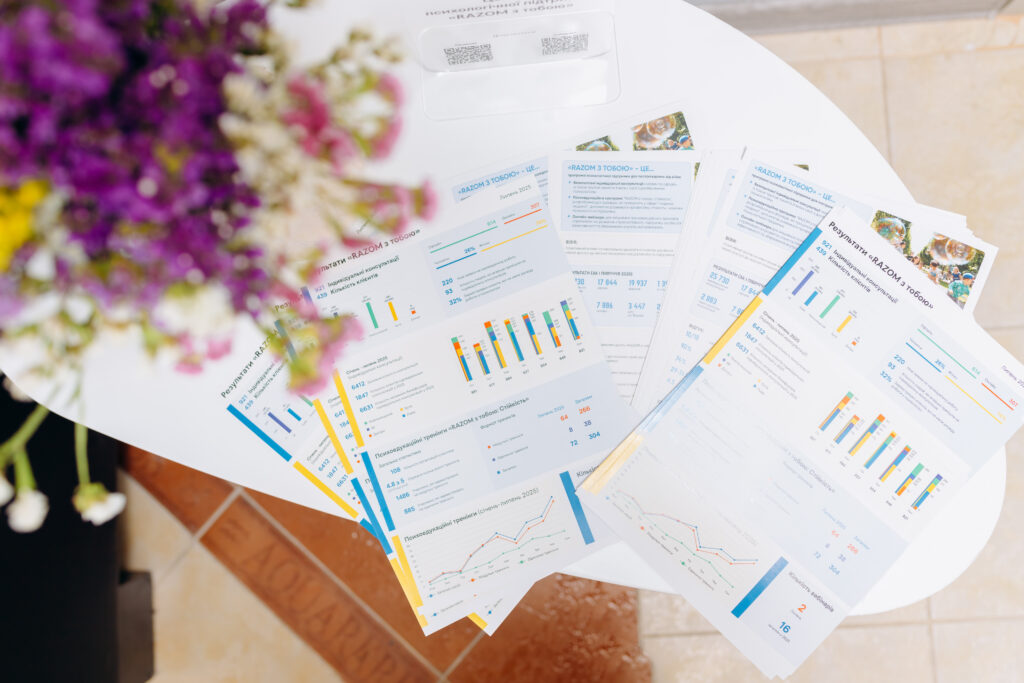
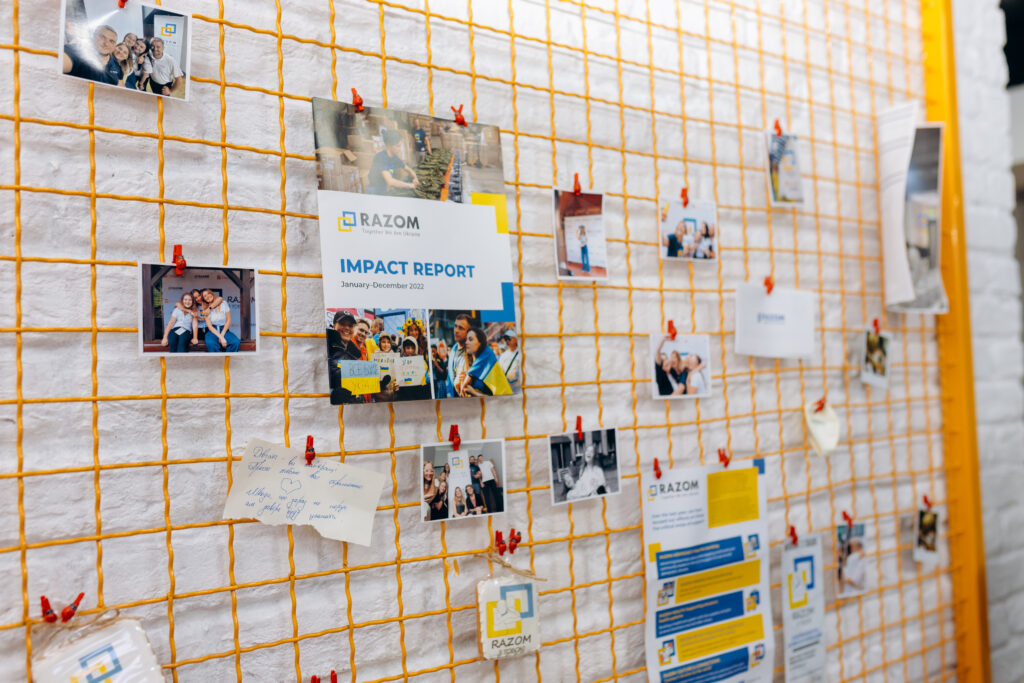
Why Continued Support Matters
As the war drags on, and even more so when active hostilities subside, the temptation for the world will be to move on – to redirect funding to physical reconstruction projects while mental health quietly falls down the list of priorities. But the lesson from other wars is stark. As a fact, after the Vietnam War, U.S. veterans suffered a very high rate of suicides because invisible wounds went untreated. Ukraine cannot afford such a tragedy.
As Gudyma reminds us: “War never ends at the frontlines – it continues in the hearts and minds of those who carry its invisible wounds.” Healing those wounds is not a short-term emergency measure; it is a generational project.
Ukraine’s ability to rebuild schools, businesses, and communities depends on whether its people can process grief and rediscover meaning. A resilient Ukraine begins with resilient Ukrainians.
Together With You
Razom means “together.” And Razom z Toboyu means that no Ukrainian has to face their trauma alone. This World Mental Health Day, as we reflect on the global call for mental health equity, Razom z Toboyu offers a powerful example of how community, innovation, and international solidarity can transform lives and societies.
The path to a free, thriving, democratic Ukraine runs not only through victory on the battlefield but also through healing in clinics, group sessions, and quiet conversations where pain is met with compassion and stigma gives way to acceptance.
Supporting this work is not just charity. It is an investment in stability and human dignity. It is how Ukraine will win the peace, and establish lasting justice and security for itself and for the global community.
